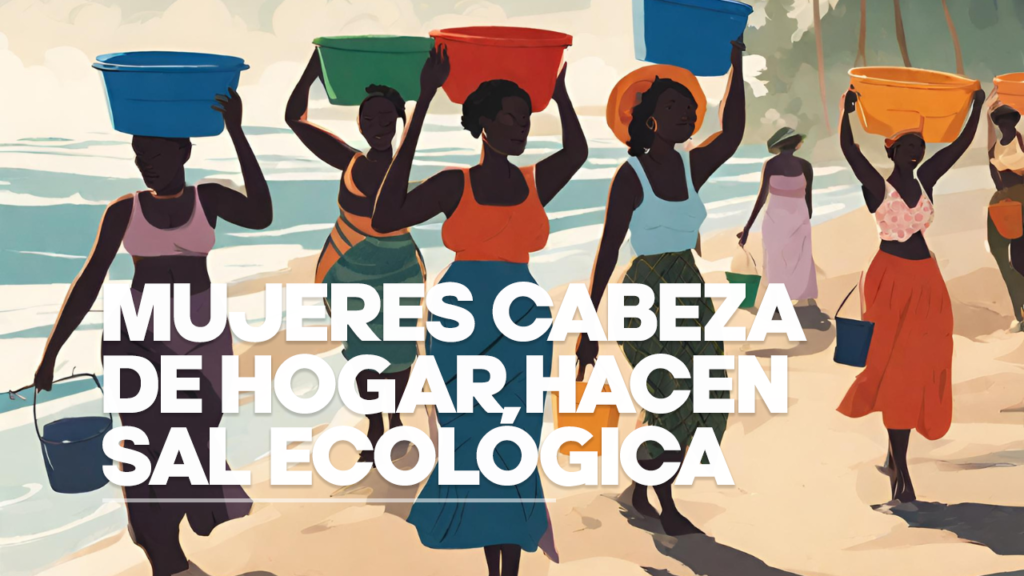Sometimes we wonder how we can make a difference in the world. The answer is simpler than we think: it only takes small actions regarding how we use our resources and, most importantly, the environment around us. This is the case for a group of women head of households in Ivory Coast, who have found an environmentally friendly and practical business idea that works perfectly with their surroundings and available resources.
We’re talking about producing “Salt,” yes, you heard that right! Living just a few meters from the coast, these determined women gather seawater and pour it into beds where a natural evaporation process takes place, using the sun as their main catalyst. The sun heats the water, and the salt is left behind at the bottom of the bed, which is covered with black plastic.
This process is simple and eco-friendly, as it doesn’t require wood, boilers, or stoves to heat the water and evaporate it.
In Africa, the NGO AfriEvolve inspires and supports women to seek sustainable and environmentally friendly economic activities. And what better example than this one, shared in a video by DW Español on their official social media account.
Tell us, what kind of innovative and environmentally respectful initiatives have emerged in your community? Would you like to know what kind of institutions or organizations could support you in making it happen?
Créditos: DW Español (cuenta verificada) / @dw_envirnment
Si quieres ver el video ingresa a este link:
https://www.facebook.com/share/r/Px9rZLvsYktZLQGi/?mibextid=xfxF2i
Socioeconomic and Cultural Impact
This activity has had a positive impact on the lives of many women. For instance, in the Bouaflé region, 150 women farmers have diversified their income sources through additional activities, such as salt production, with the support of the organization Solidaridad. These women have received training in financial literacy, sustainable farming practices, and nutrition, which has strengthened their socio-economic resilience and their involvement in decision-making within their communities.
Cultural Impact
Culturally, salt collection has historically been a women-led activity, and its importance to the local economy has reinforced the role of women in society. However, despite their significant contributions, women in these communities often face challenges such as limited access to credit, education, and basic services.
Current Status of Cooperatives
There are various associations and cooperatives that unite women engaged in salt collection and other economic activities. These organizations have been instrumental in improving access to resources, training, and markets. For example, the women’s cooperative for the production, transformation, and marketing of food crops in Maraouhé has provided support to its members to strengthen their financial inclusion and involvement in decision-making processes.
Improvement in Community Lifestyle
Salt collection has enabled many women to generate income that contributes to the well-being of their families. The funds earned are used for basic needs like food, health, and education, thus improving the quality of life in the community. Additionally, women have played a crucial role in building community infrastructure, such as schools and health centers, using part of their income for these purposes.

